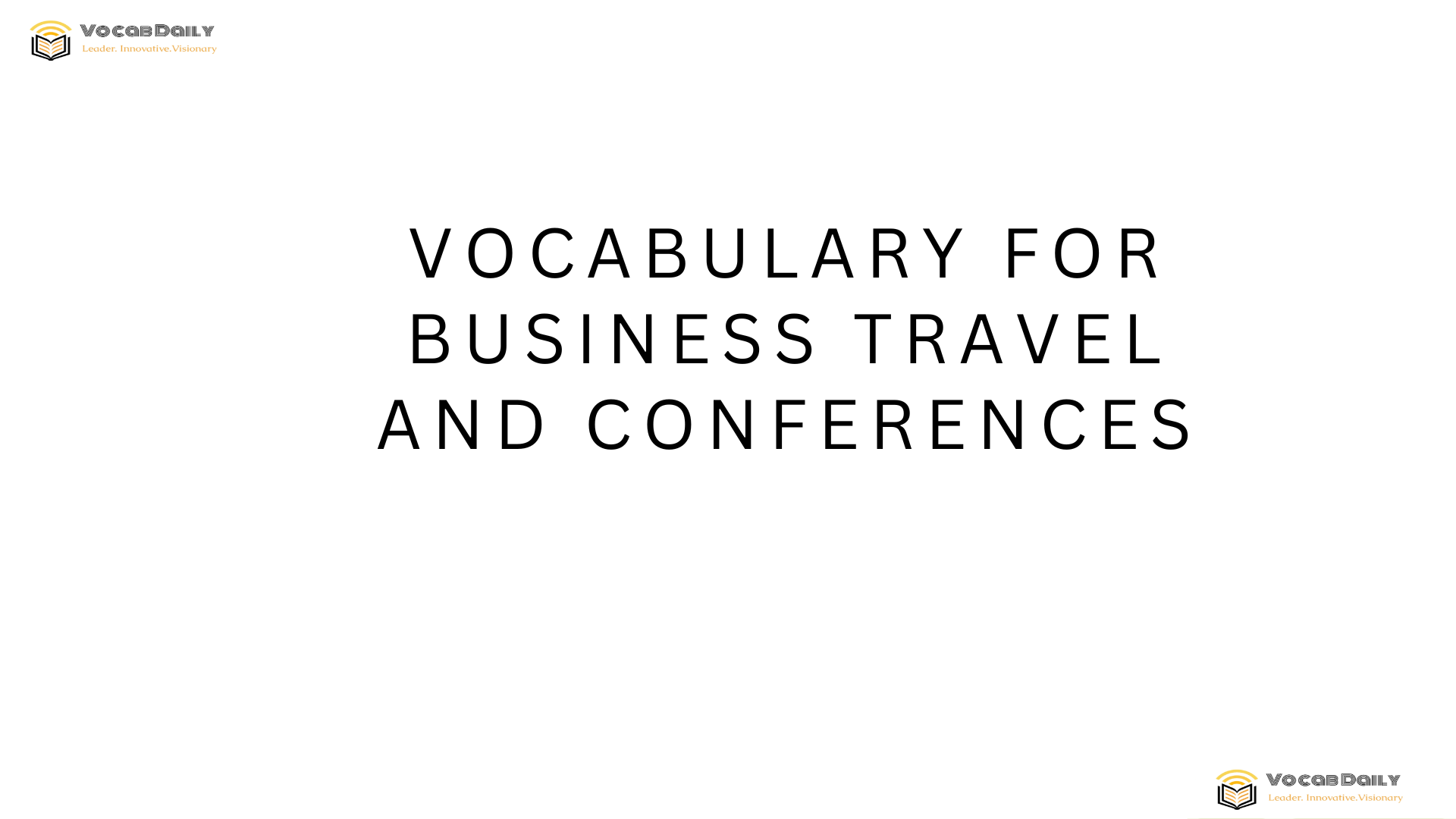Essential Vocabulary for Business Travel
When traveling for business, knowing the right vocabulary can enhance communication and improve overall efficiency. Business travel often involves interactions with colleagues, clients, and service providers in various situations such as airports, hotels, and meetings. Familiarizing yourself with key terms ensures you can navigate these scenarios confidently.
Words like itinerary, which refers to your travel schedule, and layover, meaning a short stop between flights, are commonly used. It’s also important to understand terms like boarding pass, which is the document that allows you to board your flight, and customs, the official process of entering a country. Knowing these terms helps reduce travel stress and keeps your trip organized.
Hotel and Accommodation Vocabulary
Business trips usually require staying at a hotel, so understanding hotel-related vocabulary is crucial. Terms such as reservation (booking a room in advance), check-in (registering at the hotel upon arrival), and check-out (paying and leaving) are necessary for smooth hotel stays.
Plus, words like amenities refer to the extra facilities a hotel offers, such as Wi-Fi, gym, or breakfast service. Knowing suite means a larger, more luxurious room option, which might be relevant for senior executives. In case you need to change your plans, knowing the term cancellation policy is helpful to understand potential fees for cancelling a booking.
Air Travel and Airport Terms
Airports can be confusing for travelers without the right vocabulary. Key airport terms include gate, the area where you board your plane, departure for leaving a city, and arrival for reaching a destination. It’s also useful to know what a lounge is — a private waiting area often available to business travelers for comfort.
Fear of delays or cancellations can be less stressful if you understand terms like flight delay and boarding time. Additionally, words like baggage claim refer to where you pick up your checked luggage, and security checkpoint is where you go through the airport security screening process.
Conference and Meeting Vocabulary
Business conferences often have specific vocabulary that can aid in participation and networking. Terms like keynote speaker — the main speaker at a conference — and panel discussion — a conversation between several experts — are important to understand. You may also hear about a breakout session, which is a smaller meeting within the larger conference.
Other frequently used words include agenda, the schedule or list of topics to be discussed, and networking, the act of meeting new professional contacts. Knowing the meaning of registration desk will help you know where to check-in for the event, and workshop refers to a detailed session that focuses on a specific skill or topic.
Business Travel Planning Terms
Planning a business trip includes several steps that come with unique vocabulary. The word booking refers to making arrangements for flights, accommodations, or transportation. To confirm means to double-check those arrangements to ensure everything is set.
When traveling with others, you might hear about group travel, which refers to coordinated travel for several people. Additionally, understanding travel allowance or per diem is important as these words relate to company policies on travel expenses and daily budgets.
In logistics, itinerary change indicates any modification in your travel plan, while reimbursement describes the process through which your company pays you back for expenses incurred during the trip.
Transportation Vocabulary for Business Travel
In addition to flying, business travelers often use other types of transportation. It’s useful to know terms like car rental, which means hiring a vehicle for temporary use. Shuttle service usually refers to bus or van transport between airport and hotel or event venues.
Words like commute describe traveling regularly between your hotel and workplace or meeting locations. A taxi or ride-share (like Uber or Lyft) is a common option for short distances. Understanding public transportation such as trains or buses can also be helpful if you are traveling in unfamiliar cities.
Communication Vocabulary in Business Settings
Being able to communicate professionally during business trips and conferences requires understanding phrases commonly used in business English. Examples include touch base, meaning to make contact or update someone, and follow up, which refers to an action taken after a meeting or conversation.
During meetings, you might hear action items, which are tasks assigned to team members, or minutes, the written record of what was discussed. When preparing presentations or proposals, terms like slides and handouts are also essential. Knowing this vocabulary helps you actively participate in business discussions.
Cultural Etiquette and Politeness Vocabulary
Traveling internationally for business requires awareness of cultural etiquette and polite language. Words like business card and the phrase exchange cards are crucial in many professional cultures. Understanding how to say thank you or please politely can create a positive impression.
Also, phrases like dress code help you know what attire is appropriate for meetings or events. Terms such as formal, business casual, or smart casual describe different levels of dress professionalism. Learning specific greetings or customs, like bowing or handshakes, depending on your destination, can make a great difference in building relationships.
Common Expressions for Problem Solving During Travel
Occasionally, business travel may present unforeseen issues. Having the right vocabulary helps you communicate problems and find solutions efficiently. For example, if your luggage is lost, you might say, “My baggage is missing”, or “I need to file a lost luggage report.”
If flights are delayed, knowing how to ask, “What is the estimated time of departure?” can keep you informed. When seeking assistance, phrases like “Can you help me with this issue?” or “Is there an alternative flight available?” are effective. Understanding these expressions ensures smoother problem resolution while traveling.
Using the correct vocabulary for business travel and conferences not only improves communication but also reflects professionalism and preparedness. Whether you are booking flights, attending meetings, or handling unexpected situations, these terms will help you navigate your business trips with confidence.
Also check out VocabDaily workbook collections.

Leave a Reply